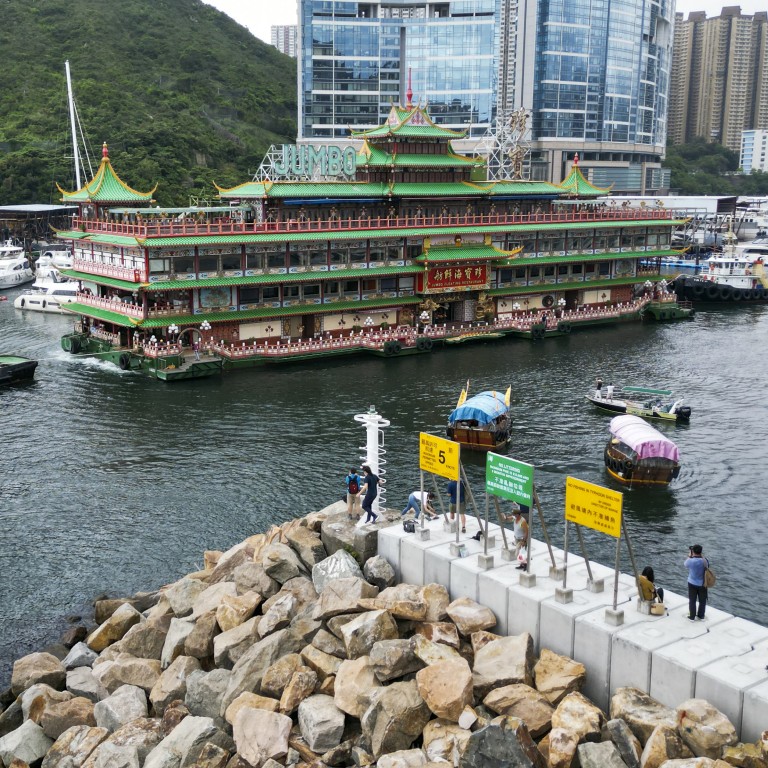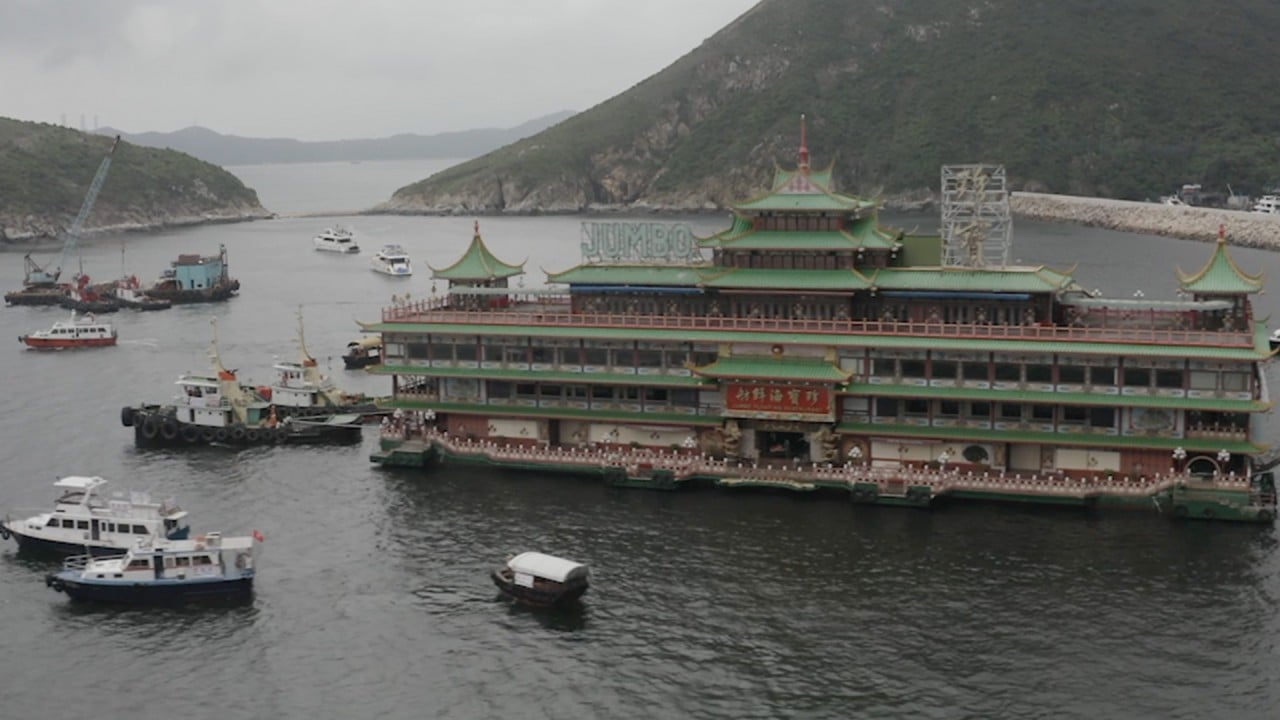
Owner of Hong Kong’s iconic Jumbo Floating Restaurant could claim compensation if vessel had been insured, analysts say
- Experts say owner could seek compensation for total loss, but it might leave vessel in South China Sea as salvage costs would exceed its market value
- Given vessel’s age and complex structure, owner might have had difficulty finding an insurer, they add
The owner of Hong Kong’s iconic Jumbo Floating Restaurant, which capsized in the South China Sea over the weekend, could claim for total loss if the vessel had been indemnified against possible damage or destruction, insurance analysts have said.
Experts also said they believed the owner would leave the vessel in the South China Sea as the cost for salvaging it would exceed HK$10 million (US$1.27 million), which might be higher than its market value.
Many questions about the vessel remain unanswered after it capsized following its departure last week for a new home. The sinking also sparked concern among Hongkongers, with conspiracy theories swirling that human error was a factor.
Its owner Aberdeen Restaurant Enterprises, a subsidiary of the listed gaming firm Melco International Development, has not given any information on the financial loss or whether a salvage operation would continue.
Election Committee lawmaker Chan Pui-leung said if the owner had bought an insurance policy to cover the vessel’s towage during the voyage, it could seek compensation for total loss, as the vessel had sunk in deep waters and would be difficult to retrieve.
“Since Jumbo was towed by tug boats, only the latter were required to have third-party liability insurance coverage. Any insurance for the restaurant itself is not mandatory,” said Chan, who is also general manager of China Taiping Insurance (HK) Company. “If the vessel was insured for protection and indemnity, the owner could claim compensation for the ship’s total loss due to running into an accident.”
The firm said the vessel sank 1km (3,300 feet) under the sea which made it “extremely difficult” to salvage.
What happened to Hong Kong’s Jumbo Floating Restaurant?
Chan said the compensation would be either the vessel’s market value, estimated at millions of dollars, or the salvage fee at more than HK$10 million, whichever was lower.
Professor Stephen Li Yiu-kwong, of the department of logistics and maritime studies at Polytechnic University, said it was still feasible to salvage the wreckage, but the cost would exceed HK$10 million and the owner was not obliged under international maritime law to retrieve the vessel unless it had caused an obstruction at sea.
But Chan doubted whether the owner managed to find an insurer given the age of the 46-year-old vessel and the voyage risks.
“Since this ship is rather old and has a complex structure with several floors which will be easily overturned by high winds, the risks would be very high if the voyage is long,” he said. “I really doubt if it can get insured.”
He said it was very likely the owner would give up on salvaging the ship given the expenses involved, and it would be “better off seeking insurance compensation” if the vessel had been insured.

Selina Lau Pui-ling, CEO of the Hong Kong Federation of Insurers, said even if the vessel was insured, marine surveyors would investigate the incident before deciding whether insurance compensation could be granted.
“The investigation will look into whether human error was involved. If somebody has deliberately made the ship sink, they will face criminal liability,” she said.
Lawmaker Chan Kin-por, representing the insurance sector, said Jumbo’s owner would probably not be able to get the vessel insured as its market value was difficult to determine.
“It is very difficult to assess its value as the vessel has depreciated over the years. But it may be very precious in terms of its sentimental value,” he said. “Even if it got insured, the premium would be very high while the coverage amount would not be too much. The owner may [not find it worth its while] to get it insured.”
But Chan Pui-leung said it would not be easy to prove if human error was involved and the incident happening on the high seas made gathering of evidence very difficult.
Hong Kong’s iconic Jumbo Floating Restaurant sinks in South China Sea
The Marine Department said it had dispatched boats to facilitate traffic and monitor Jumbo’s departure from the Aberdeen typhoon shelter on June 14 and found “nothing abnormal”.
Jumbo encountered adverse conditions when it passed the Paracel Islands, known to China as the Xisha Islands, in the South China Sea on Saturday afternoon, resulting in water entering the vessel and causing it to tip, the company said on Monday.
The restaurant, which cost HK$32 million when it was built in the 1970s, had been a tourism landmark in Hong Kong attracting celebrities from near and far, including Britain’s Queen Elizabeth and film stars such as Tom Cruise and Chow Yun-fat.


